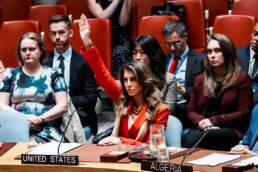المصادر:
(*) نُشرت هذه الدراسة في مجلة المستقبل العربي العدد 464.
(**) شيماء حطب: أستاذة في كلية الاقتصاد والعلوم السياسية، جامعة القاهرة.
البريد الإلكتروني: seihat@feps.edu.eg
[1] Raymond Hinnebusch, «Towards a Historical Sociology of the Arab Uprising: Beyond Democratization and Post-Democratization,» in: Larbi Sadiki, Routledge Handbook of the Arab Spring: Rethinking Democratization (New York: Routledge, 2015), pp. 43‑44.
[2] Guillermo O’Donnell and Philippe C. Schmitter, Transitions from Authoritarian Rule: Tentative Conclusions about Uncertain Democracies (Baltimore, MD; London: The Johns Hopkins University Press, 1986), and Jason Brownlee, Tarek Masoud, and Andrew Reynolds, The Arab Spring: Pathways of Repression and Reform. UK: Oxford: Oxford University Press, 2015), p. 169.
[3] Robert D. Benford and David A. Snow, «Framing Processes and Social Movements,» Annual Review of Sociology, vol. 26, no. 1 (August 2000), pp. 611‑639.
[4] Skocpol, 1979, pp. 7‑8, and Rueshemeyer, 1993
[5] Charlotte Ryan and William A. Gamson, «Are Frames Enough?,» in: Jeff Goodwin and James M. Jasper, The Social Movements Reader: Cases and Concepts (Oxford: John Wiley and Sons Ltd., 2015), p. 139.
[6] Benford and Snow, «Framing Processes and Social Movements,» pp. 611‑639.
[7] David A. Snow and Robert D. Benford, «Master Frames and Cycles of Protest,» in: Aldon D. Morris and Carol McClurg Mueller, Frontiers in Social Movement Theory (New Haven, CT: Yale University Press, 1992), pp. 133‑155.
[8] Maha Abdelrahman, «A Hierarchy of struggles? The «Economic» and the «Political» in Egypt’s,» Review of African Political Economy, vol. 39, no. 134 (2012), pp. 614–628.
[9] Raymond Hinnebusch, «Change and Continuity after the Arab Uprising: The Consequences of State Formation in Arab North African States,» British Journal of Middle Eastern Studies, vol. 42, no. 1 (2014), p. 13.
[10] Stacher, 2012
[11] Maha Abdelrahman , ««With the Islamists?-Sometimes: With the State?-Never!»: Cooperation between the Left and Islamists in Egypt,» British Journal of Middle Eastern Studies, vol. 36, no. 1 (2009), p. 41.
[12] المصدر نفسه، ص 42 – 46، و Jeffrey T. Kenney, «Millennial Politics in Modern Egypt: Islamism and Secular Nationalism in Context and Contest,» Numen, vol. 59, nos. 5‑6 (2012), pp. 449‑450.
[13] B. E. Hassan, «A Tale of Two Revolutions: Why Tunisia is Looking So Much Rosier Than Egypt,» (2011), <http://worldcrunch.com/tale-two-revolutions-whytunisia- looking-so-much-rosier-egypt/4036>.
[14] Nathan Brown, «Egypt’s Failed Transition,» Journal of Democracy, vol. 24, no. 4 (2013) pp. 45‑47.
[15] Hesham Sallam, «Post-Elections Egypt: Revolution or Pact,» CCAS Newsletter (Winter-Spring 2012) Paper Published in collaboration with Georgetown University’s Center for Cotemporary Arab Studies.
[16] Brown, Ibid., pp. 52‑53 and 56.
[17] شريف يونس، نداء الشعب: تاريخ نقدي للإيديولوجيا الناصرية (القاهرة: دار الشروق، 2012).
[18] Brecht de Smet, Gramsci on Tahrir: Revolution and Counter-Revolution in Egypt (London: Pluto Press, 2016), pp. 133‑135.
[19] عادلي، 2014.
[20] Smet, Ibid.
[21] Maha Abdelrahman, Egypt’s Long Revolution Protest: Protest Movements and Uprisings (New York: Routledge, 2014), pp. 151‑154.
[22] Brecht de Smet, «Revolution and Counter-Revolution in Egypt,» Science and Society, vol. 78, no. 1 (2014), pp. 19‑21.
[23] Abdelrahman, Ibid., pp. 165‑170.
[24] منظمة العفو الدولية، تقرير منظمة العفو الدولية لعام 2015 – 2016: حالة حقوق الإنسان في العالم (لندن: منظمة العفو الدولية، 2016).
[25] Marina Ottaway, «Egypt and Tunisia: Democratic Transitions and the Problem of Power,» Wilson Center’s Middle East Program (18 April 2014).
[26] Samer Soliman, The Autumn of Dictatorship Fiscal Crisis and Political Change in Egypt under Mubarak (Stanford, CA: Stanford University Press, 2011).
[27] Cavell, «What Is the Emersonian Event? A Comment on Kateb’s Emerson».
[28] Luis E. Aguilar, Marxism in Latin America (New York: Alfred A. Knopf, 1968).
[29] Manuel Antonio Garretón and Timothy J. Power, «The Ideas of Socialist Renovation in Chile,» Journal of Economics, Culture and Society, vol. 2, no. 2 (1989), pp. 8‑40.
[30] لمزيد من التفاصيل انظر: Charles Taylor, Modern Social Imaginaries (Durham: Duke University Press, 1972), pp. 191‑195, and Aletta J. Norval, Aversive Democracy: Inheritance and Originality in the Democratic Tradition (Cambridge, UK: Cambridge University Press, 2007), pp. 15‑16.
[31] Garretón and Power, Ibid., pp. 8‑9 and 15‑16, and Kenneth M. Roberts, Deepening Democracy?: The Modern Left and Social Movements in Chile and Peru (Redwood: Stanford University Press, 1998), pp. 7‑9.
[32] Garretón and Power, Ibid., pp. 11‑14.
[33] Harvey 2003.
[34] تم استخلاص موضوعات النقد الذاتي من تصنيف الإجابات التي تم الحصول عليها من المقابلات شبه المقننة مع أعضاء الأحزاب والتيارات السياسية.
[35] في ظل النص الدستوري الذي يقرر بأن الشريعة الإسلامية هي المصدر الرئيس للتشريع، وفي ظل استخدام الأزهر كذراع ديني يضمن احتكار الدولة تفسير وتأويل النص الديني.
[36] Hinnebusch, «Change and Continuity after the Arab Uprising: The Consequences of State Formation in Arab North African States».
[37] Sami Zemni, Brecht de Smet, and Koenraad Bogaert, «Luxemburg on Tahrir Square: Reading the Arab Revolutions with Rosa Luxemburg’s The Mass Strike,» Antipode, vol. 45, no. 4 (September 2013), p. 3.
[38] أ. شكري، مقابلة شخصية (8 كانون الأول/ديسمبر 2015).
[39] م. المهندس، مقابلة شخصية (8 كانون الأول/ديسمبر 2015).
[40] لم يكن دخول أنصار لاهوت التحرير الساحة السياسية أمراً ميسراً خالياً من العقبات، فقد تنامت اتجاهات فكرية آنذاك لفحص أسس العلاقة بين الدين والسياسة. وانقسمت الكنيسة الكاثوليكية بين تيار فكري تقليدي يؤيد الفصل التام ويدعو إلى تركز الأنشطة الكنسية حول الأنشطة الخدمية والرعوية وبث الروح التشاركية والتضامنية كسبيل للخلاص الفردي، وتيار آخر تقدمي يرى أن الدين ينطوى في جوهره على بعد سياسي من خلال إسباغه الشرعية على بعض النضالات وتجريم أخرى، فهناك علاقة تفاعلية بين المجالين الديني والسياسي لها مآلاتها وتأثيراتها في مجمل التغيرات والتفاعلات والصراعات المجتمعية. فلم ينشأ الجناح التقدمي لحركة لاهوت التحرير من فراغ، بل هو نتاج استقطاب فكري أسفر عن خلق جبهتين للصراع بين معسكري المحافظين والتقدميين، وكسر الطابع النخبوي للكنيسة الكاثوليكية والانغماس في الحياة اليومية للأفراد، والنأي عن الإفراط في التركيزٍ على الجانب الروحي، والتركيز على أبعاد تحرر الإنسان من واقع ظالم، وحث الأفراد وتمكينهم من الدفاع عن حقوقهم المسلوبة.
[41] التي سيطرت لقرابة أربعة عقود على المجال الديني والخطاب الأخلاقي في دولة ما بعد الاستقلال في أمريكا اللاتينية باستثناء النشأة العلمانية للكنيسة ودولة ما بعد الاستقلال في أوروغواي وفنزويلا وبوينس آيرس.
[42] Daniel M. Bell, «After the End of History: Latin American Liberation Theology in the Wake of Capitalism’s Triumph,» Journal of Religion and Society, no. 2 (2000), pp. 2‑7.
[43] المصدر نفسه، ص 7 – 9.
[44] مقابلة شخصية بتاريخ 11 نيسان/أبريل 2016.
[45] للمزيد حول فرضية الاعتدال – الإدماج، انظر:. Jillian Schwedler, «Can Islamists Become Moderates?: Rethinking the Inclusion-Moderation Hypothesis,» World Politics, vol. 63, no. 2 (April 2011), pp. 347‑350; Ashour O. The De-Radicalization of Jihadists: Transforming Armed Islamist Movements (New York: Routledge, 2009), p. 205, and Asef Bayat, Making Islam Democratic: Social Movements and the Post Islamist Turn (Stanford, CA: Stanford University Press, 2007).
[46] خالد علي، مقابلة شخصية (3 آذار/مارس 2016).
[47] محمد هواري، مقابلة شخصية (24 شباط/فبراير 2016).
[48] مقابلة شخصية 10 نيسان/أبريل 2016.
[49] م. المهندس، مقابلة شخصية (8 كانون الأول/ديسمبر 2015).
[50] محمد هواري، مقابلة شخصية (24 شباط/فبراير 2016).
[51] خالد علي، مقابلة شخصية (3 آذار/مارس 2016).
[52] Smet, Gramsci on Tahrir: Revolution and Counter-Revolution in Egypt.
[53] الموقع الرسمي للانتخابات الرئاسية 2012، (تاريخ الوصول 24 نيسان/أبريل 2106).
[54] مقابلة شخصية بتاريخ 10 – 11نيسان/أبريل 2016.
[55] محمد هواري، مقابلة شخصية (24 شباط/فبراير 2016).
بدعمكم نستمر
إدعم مركز دراسات الوحدة العربية
ينتظر المركز من أصدقائه وقرائه ومحبِّيه في هذه المرحلة الوقوف إلى جانبه من خلال طلب منشوراته وتسديد ثمنها بالعملة الصعبة نقداً، أو حتى تقديم بعض التبرعات النقدية لتعزيز قدرته على الصمود والاستمرار في مسيرته العلمية والبحثية المستقلة والموضوعية والملتزمة بقضايا الأرض والإنسان في مختلف أرجاء الوطن العربي.



